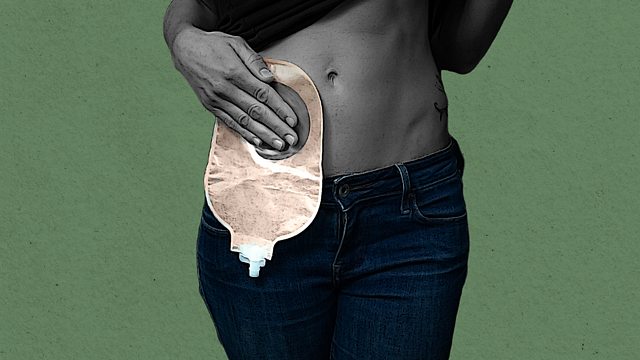Introduction
The trip of coping with an ostomy is typically laden with difficulties, inquiries, and unpredictabilities. For people undertaking this life-altering treatment, recognizing ostomy care comes to be critical-- not just for physical wellness however also for emotional and emotional health. This write-up intends to dig deep right into the profound relationship between ostomy support and client health. We will certainly discover numerous aspects including education, training, emotional aspects, and area support. By the end of this comprehensive read, you'll discover simply exactly how interconnected these aspects are.
The Importance of Ostomy Care
What is a Stoma?
A stoma is basically an operatively developed opening in the body that allows waste to leave it when normal elimination paths are endangered. People might have a stoma because of a range of clinical problems such as cancer, Crohn's illness, or traumatic injuries. Recognizing what a stoma is can help patients much better navigate their post-surgery life.
What is an Ostomy?
An ostomy refers generally to any type of operation that creates an opening (stoma) to divert bodily waste-- urine or feces-- from its typical path. Ostomies can be momentary or permanent, relying on the hidden medical condition being treated.
What is Ostomy Care?
Ostomy care incorporates all activities involved in managing a stoma effectively. This includes cleaning up the area around the stoma, altering ostomy bags, and checking for indicators of issues like skin irritability or infections.

The Function of Education in Ostomy Support
Why Education and learning Matters
Education plays a pivotal function in how well patients adapt to their new reality after surgical procedure. Those that go through stoma care training tend to experience fewer complications and have boosted quality of life compared to those that do not obtain appropriate training.
NDIS Complex Bowel Care Training
In Australia, programs like NDIS complex bowel care training help people and caretakers recognize the complexities bordering bowel administration for ostomy clients. This specialized training covers every little thing from health practices to identifying signs of distress.
Stoma Treatment Training for Carers
Caregivers play a vital function in supporting individuals with ostomies. Enlisting them in stoma treatment training for carers ensures they have the understanding required to give reliable help without endangering their very own wellness.
Emotional Facets of Coping with an Ostomy
Psychological Effect on Patients
Living with a stoma can result in emotional difficulties such as stress and anxiety, depression, or sensations of seclusion. The mental impact ought to not be ignored; recognizing these sensations is necessary for recovery.
Community Support Groups
Engaging with community support system can offer indispensable emotional alleviation and link. Sharing experiences with what is NDIS bowel care others that understand can foster strength and optimism amongst patients.
The Link In between Physical Wellness and Social Support
How Social Circles Impact Recovery
Research reveals that having strong social connections considerably improves recuperation rates post-surgery. Buddies and family can provide both sensible aid and emotional support throughout challenging times.
The Function of Healthcare Professionals
Healthcare experts act as vital components in giving comprehensive bowel care management They can lead individuals through finest methods while additionally attending to any kind of problems about living with an ostomy.

Advanced Techniques in Ostomy Management
Complex Digestive tract Care Courses
Advanced strategies in ostomy monitoring are covered thoroughly in complex bowel treatment courses which focus on specialized demands that arise from various medical problems influencing bowel function.
Bowel Care Educating Programs
Participating in structured bowel treatment training programs ensures people are well-appointed to manage daily difficulties related to their ostomies effectively.
Daily Life Adjustments After Surgery
Adapting Your Diet
Diet plays an essential function in managing an ostomy successfully. Foods high in fiber might need to be consumed very carefully while preserving hydration degrees becomes paramount.
Clothing Choices
Choosing clothing that accommodates your ostomy bag conveniently is crucial for your psychological well-being and total self-confidence degrees when stepping out into society.
Navigating Relationships Post-Ostomy
Communicating with Enjoyed Ones
Open dialogue with loved ones concerning your condition can help ease tension and foster understanding within connections affected by your surgery.
Dating After Surgery
Dating post-ostomy might seem daunting; nevertheless, lots of people locate love again by being in advance concerning their scenario while emphasizing other attributes that make them eye-catching partners.
Frequently Asked Concerns (FAQs)
What kinds of ostomies exist?- The most typical types consist of colostomies, ileostomies, and urostomies.
- It's usually recommended to alter the bag every 3-- 7 days but depends upon individual circumstances.
- Yes! Swimming is usually risk-free once you have actually recovered effectively post-surgery.
- Consult your doctor immediately; they might recommend specific lotions or changes to your routine.
- Packing extra products in addition to comfort things like wipes or skin obstacles will certainly ease traveling stress.
- Absolutely! Certain foods may cause clogs or gas; it's a good idea to track what works best for you personally.
Conclusion
In summary, "Checking out the Interconnectedness of Ostomy Support and Individual Health" discloses layers upon layers of subtleties that emphasize exactly how essential detailed care is after surgical treatment involving a stoma. From instructional initiatives like complex bowel care training training courses aimed at both individuals and caretakers, it's clear that knowledge translates straight into far better results-- both physical and psychological-- for those navigating life after surgery.
This subject continues evolving as more people share experiences and support networks expand stronger daily-- reminding us all that nobody needs to navigate this journey alone!